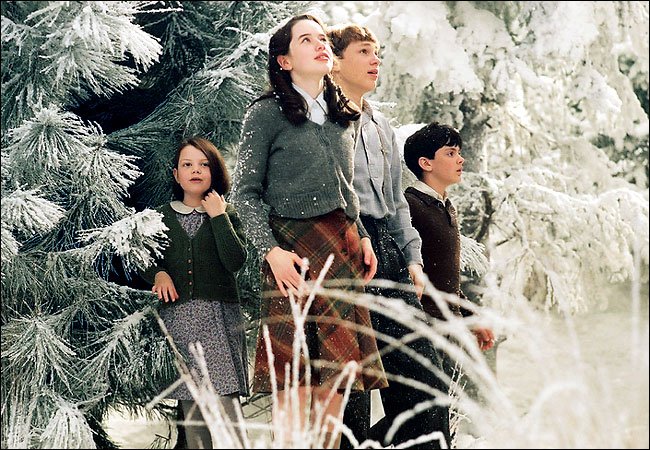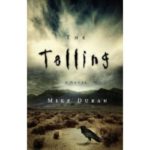C. S. Lewis Was Right
C. S. Lewis has many quotable quotes, and among them is one that capsulizes the point and purpose of fantasy,
When he was a boy, Lewis grew to love mythology. Years later, when he was struggling as an atheist against Christianity, he came to realize that the gospel is the “true myth,” the story of the real hero, the One who rescues us.
In addition he came to a place he called “joy” in his autobiography, a place that surprised him, because it was unplanned and unexpected; a place that filled him with deep satisfaction but at the same time with a thirst, a longing that the experience could continue.
In Mere Christianity, he elaborated on this place. This is the world for which we were actually created:
The Christian says, ‘Creatures are not born with desires unless satisfaction for those desires exists. A baby feels hunger: well, there is such a thing as food. A duckling wants to swim: well, there is such a thing as water. Men feel sexual desire: well, there is such a thing as sex. If I find in myself a desire which no experience in this world can satisfy, the most probable explanation is that I was made for another world. If none of my earthly pleasures satisfy it, that does not prove that the universe is a fraud. Probably earthly pleasures were never meant to satisfy it, but only to arouse it, to suggest the real thing. If that is so, I must take care, on the one hand, never to despise, or to be unthankful for, these earthly blessings, and on the other, never to mistake them for the something else of which they are only a kind of copy, or echo, or mirage. I must keep alive in myself the desire for my true country, which I shall not find till after death; I must never let it get snowed under or turned aside; I must make it the main object of life to press on to that country and to help others to do the same.
As it turns out, author V.E. Schwab, in her talk, “In Search of Doors” given at the 2018 J.R.R. Tolkien Lecture on Fantasy Literature at Pembroke College, Oxford, echoed Lewis’s thoughts, though she likely hasn’t read them. After all, she began her talk by saying she had not read Tolkien. Rather, her gateway into fantasy was Harry Potter. I imagine generations of writers will hereafter point to J. K. Rowling as the great influence for their love of fantasy. But that’s beside the point.
Schwab, in her talk, expressed the same concept of desire for something which can’t be satisfied in this world:
I was the kind of child who scoured the piled stone hills behind my grandmother’s house in Tahoe, looking for cracks shaped like doorways, grooves shaped like keyholes. I would run my hands over the rocky surface and try to remember a magic I’d never known. A password I convinced myself I’d simply forgotten. I told myself that if I could just remember the right word, the door would open, and I would find that other world I was so convinced was there. That was my youth—spent looking for doors. Not because I was unhappy—I had the kind of loving upbringing that registers in your memory as a painting instead of a film, a still life. My mother is a dreamer, and my father is a diabetic, and aside from her occasional outbursts and his occasional episodes, it was a perfectly stable, if rather solitary, childhood.
I searched for ways out not because I was miserable, or lost, but because I couldn’t shake the feeling that there was more. That the world was bigger and stranger and more magical than the one I could see. I suppose, in some ways, it was my version of faith. A belief in something you cannot see, cannot prove. But you search for it all the same. (“In Search of Doors,” as reproduced at Tor.com)
 As Lewis so astutely said all those years ago, we have these desires that can’t be fulfilled in this world because we were made for the more that Schwab describes. Lewis, however also cautioned that we should not set our affections on the copy, on the pretend country of Narnia, instead of on the real country to which Narnia points.
As Lewis so astutely said all those years ago, we have these desires that can’t be fulfilled in this world because we were made for the more that Schwab describes. Lewis, however also cautioned that we should not set our affections on the copy, on the pretend country of Narnia, instead of on the real country to which Narnia points.
We as readers and writers can, and should, look for more. Part of the wonder of fantasy is discovering a world like Hogwarts or Middle Earth that transports us. But those are sign posts, not the real thing. And that is the caution we should always keep in front of us. Because Lewis was right about our desires and what surprises us and what we are so often tempted to do with our longings.












































Yes. Though people may invent reasons why we human beings would long for worlds that don’t exist, all such thinking certainly does not enhance our ability to survive and reproduce, which is what we are supposed to be all about according to standard views of evolution.
Yet humans DO in fact long for something that goes beyond our world, something beyond any aspect of our ordinary experience.
I am sitting here in Oxford reading this article and looking forward to the Tolkien exhibit this afternoon. It is this ‘search for doors’ that led me here, led me to write, and led me to create as my Creator – to build worlds seems like, after all, a very fine way to enter into faith.